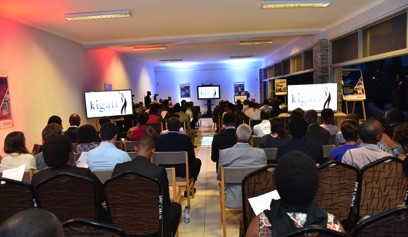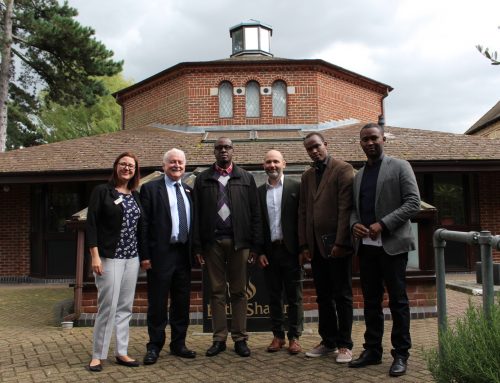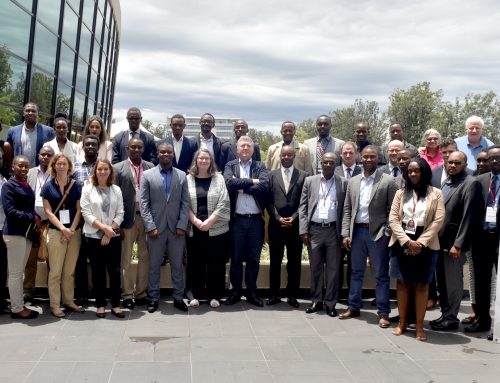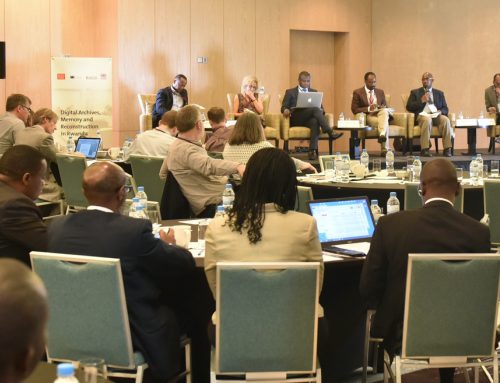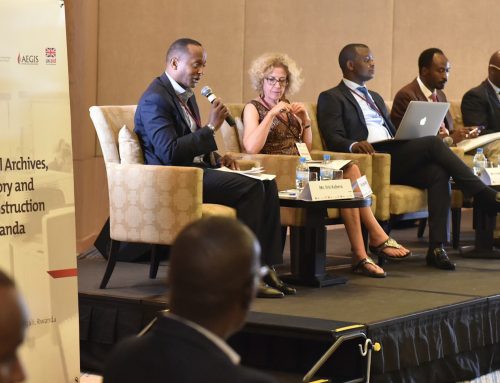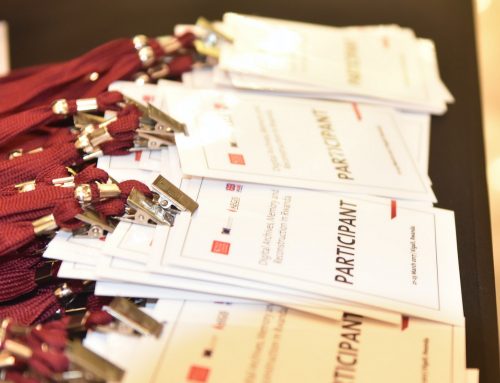The Aegis Trust and its partners have today launched a new online platform for the Genocide Archive of Rwanda at www.genocidearchiverwanda.org.rw, coinciding with International Archives Day.
The new site, which retains the URL previously used by the Archive, give access to previously unseen information about the 1994 Genocide against the Tutsi. New features include an advanced search engine, more user-friendly interface and more detailed indexing.
Featuring over 8,000 testimonies, videos, audio clips, photos and documents, the site includes interactive maps which allow users to access information by location for the first time ever. They provide detailed information about the topography and history of memorial sites as well as post-genocide reconstruction and peacebuilding activities across the country. They also offer access to a rich array of location-specific information including audiovisual testimonies from survivors and perpetrators.
Developed through thousands of individual contributions from the families and friends of genocide victims, alongside collaboration with local NGOs and government institutions, the online collection exists to preserve the memory, counter denial and provide tools for learning and peacebuilding.
“It is very important that people learn from what happened in order to prevent it from happening again, and to preserve the history as well, since it is the past that determines the future,” says survivor Beata Mukarubuga. “These testimonies will avoid people repeating what happened.”
“One of the most exciting aspects of the archive is that it’s not only documenting what happened during the genocide, but also capturing some of the peacebuilding activities that we’re doing now,” says Marc Gwamaka, Aegis’ Youth Coordinator in Rwanda. “That’s a process which people from countries in crisis today really want to learn from.”
“Today the archive is a key platform both for recording the past, but also for a conversation about what that means for the future,” says Archive Manager Claver Irakoze. “So if you’re an eyewitness, we need you to bring us your story. If you are building peace in your community, we need to hear from you. And if you are international, then please engage and make use of the Archive online.”
To find out more about the Genocide Archive of Rwanda and explore its new online platform, please visit www.genocidearchiverwanda.org.rw

